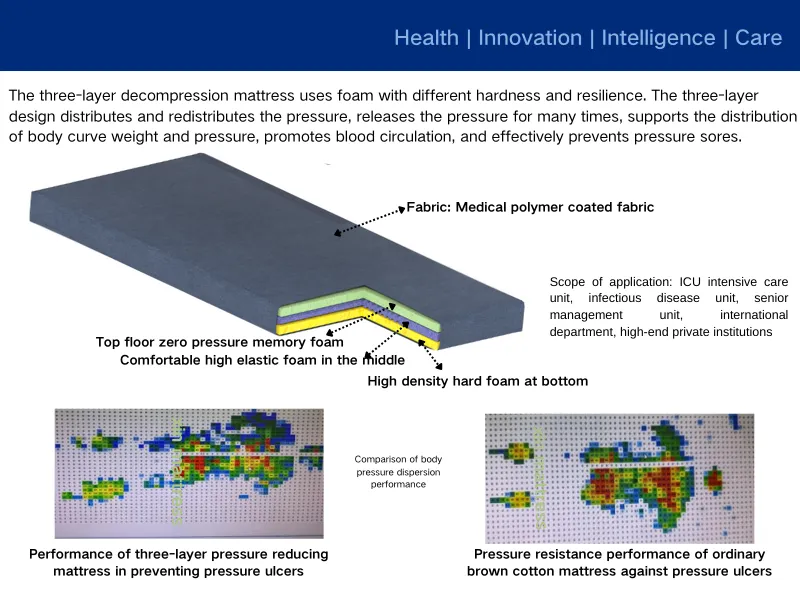Basic Guide to Medical Bed Mattresses for Bedridden Patients
Bedridden patients, whether due to chronic diseases, disability or postoperative recovery, are faced with many challenges, one of which is the risk of pressure ulcer (also known as bedsore). These painful and usually serious injuries occur when a person is confined to bed for a long time. Correct medical bed mattress plays a vital role in preventing these injuries, improving comfort and supporting overall patient care.

Choosing a Medical Bed Mattress for Bedridden Patients
Pressure release: Look for a mattress in hospital designed to redistribute weight and reduce pressure points. This is very important to prevent pressure ulcers.
Adjustable: The adjustable hardness allows nurses to customize the mattress according to the needs of patients. Some bed type medical air cushion provide settings for different parts of the body.
Temperature regulation: Medical bed mattress can provide good airflow and temperature control, which helps to keep patients comfortable and reduce moisture accumulation.
Easy to clean: Waterproof mattress for hospital bed are very important to maintain hygiene, especially in the case of incontinence.
Durability: Consider the service life and warranty information of the mattress. High-quality materials may be more expensive in the early stage, but they can save money in the long run.
Weight capacity: Ensure that the medical bed mattress can support the patient's weight. Some mattresses are specially designed for heavier people to provide stronger support.
Portability: If patients need to move frequently, a mattress that is light and easy to carry is beneficial.
Nursing and Maintenance of Medical Bed Mattress
In order to ensure the service life and effectiveness of medical bed mattresses, correct care and maintenance are very important:
Cleaning: Follow the manufacturer's cleaning instructions. Most foam and gel mattresses can be wiped with mild disinfectant, and mattress covers should be cleaned regularly.
Inspection: Check the wear and tear of the medical bed mattress regularly. Look for signs of sagging, leakage (air cushion) or any unusual smell, which may indicate mold or mildew.
Storage: When not in use, store the medical bed mattress in a dry and cool place. Avoid putting heavy objects on it, which will deform the mattress.
Medical bed mattresses play a vital role in preventing pressure ulcers in patients who have been in bed for a long time. By understanding the mechanism of action and choosing the appropriate mattress type according to the individual needs of patients, health care providers can significantly reduce the incidence of pressure ulcers. As the population continues to age, more and more people need long-term care, and the importance of effective pressure sore prevention strategies will only increase.
-
Sleep Tracking Mattress GuideNewsJul.28,2025
-
Silicone Mattress for Everyday ComfortNewsJul.28,2025
-
Mattress for Pressure Point ReliefNewsJul.28,2025
-
Customized Comfort with Specialized MattressesNewsJul.28,2025
-
Cool Gel Foam Mattress for Better SleepNewsJul.28,2025
-
Coir and Foam Mattress GuideNewsJul.28,2025
-
Ambulance Stretcher Mattress: Reliable Comfort on the MoveNewsJul.28,2025

